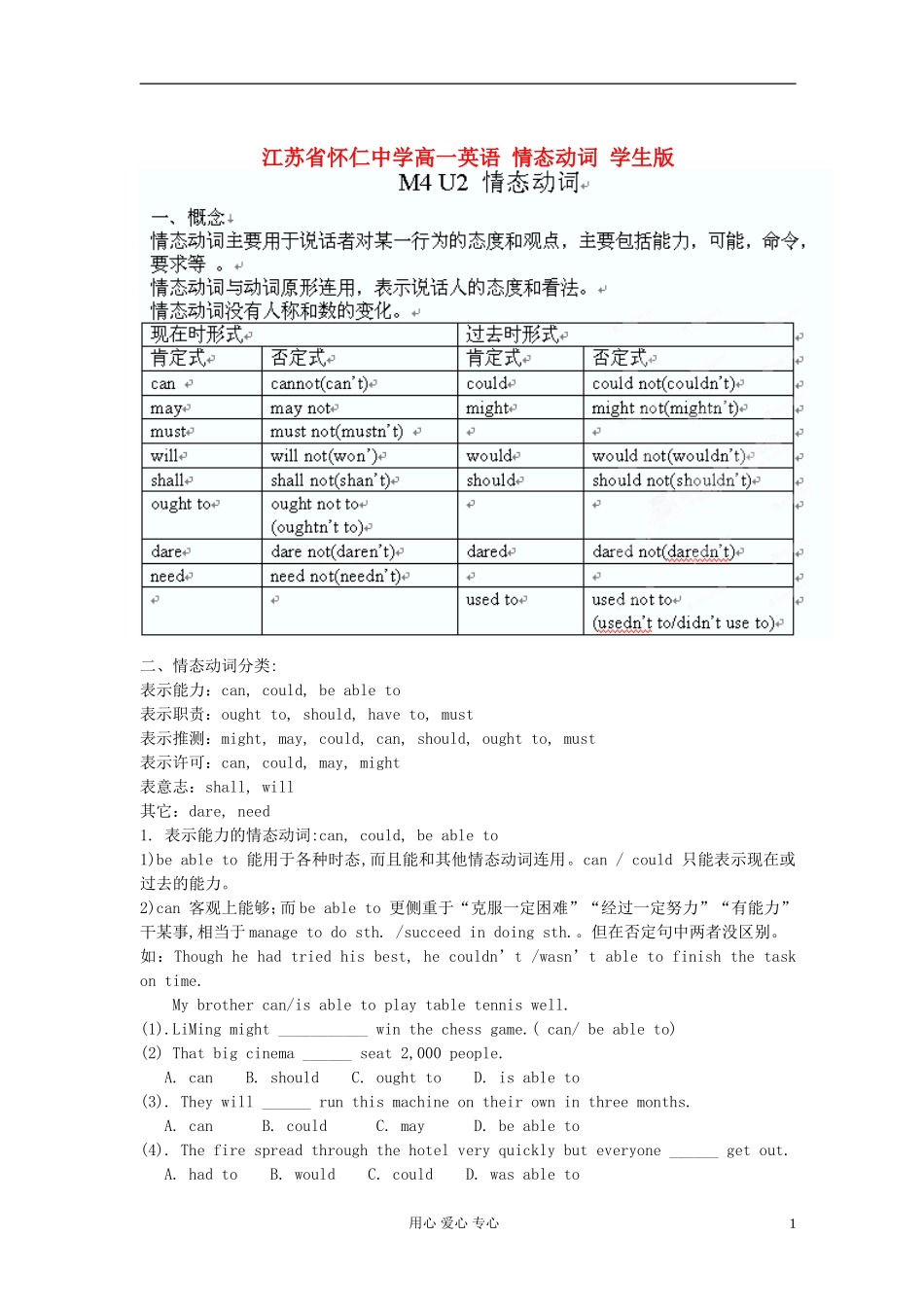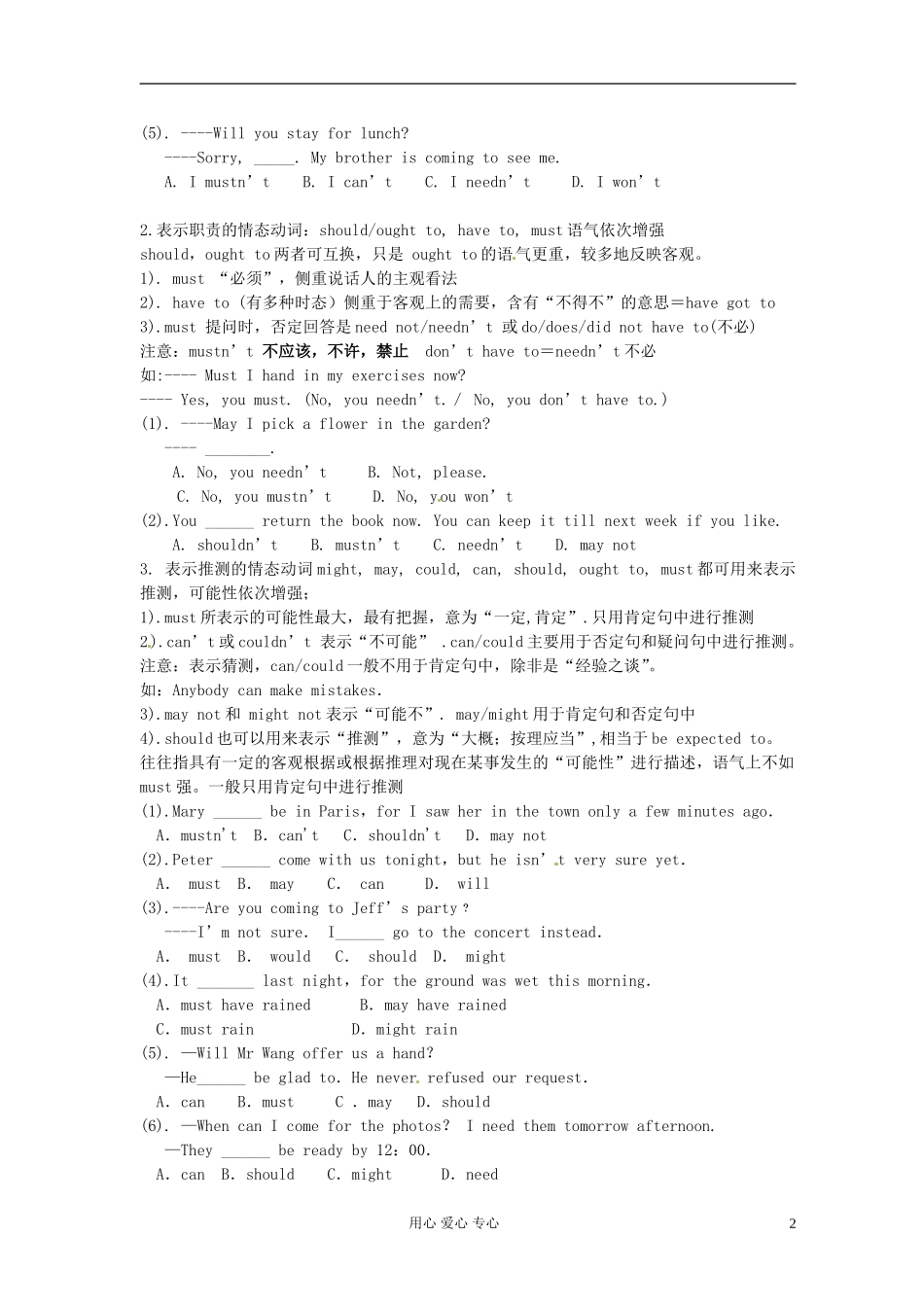江苏省怀仁中学高一英语 情态动词 学生版二、情态动词分类:表示能力:can, could, be able to表示职责:ought to, should, have to, must表示推测:might, may, could, can, should, ought to, must表示许可:can, could, may, might表意志:shall, will其它:dare, need1. 表示能力的情态动词:can, could, be able to1)be able to 能用于各种时态,而且能和其他情态动词连用。can / could 只能表示现在或过去的能力。2)can 客观上能够;而 be able to 更侧重于“克服一定困难”“经过一定努力”“有能力”干某事,相当于 manage to do sth. /succeed in doing sth.。但在否定句中两者没区别。如:Though he had tried his best, he couldn’t /wasn’t able to finish the task on time. My brother can/is able to play table tennis well.(1).LiMing might ___________ win the chess game.( can/ be able to)(2) That big cinema ______ seat 2,000 people. A. can B. should C. ought to D. is able to(3). They will ______ run this machine on their own in three months. A. can B. could C. may D. be able to (4). The fire spread through the hotel very quickly but everyone ______ get out. A. had to B. would C. could D. was able to 用心 爱心 专心1(5). ----Will you stay for lunch? ----Sorry, _____. My brother is coming to see me. A. I mustn’t B. I can’t C. I needn’t D. I won’t2.表示职责的情态动词:should/ought to, have to, must 语气依次增强should,ought to 两者可互换,只是 ought to 的语气更重,较多地反映客观。1). must “必须”,侧重说话人的主观看法2). have to (有多种时态)侧重于客观上的需要,含有“不得不”的意思=have got to3).must 提问时,否定回答是 need not/needn’t 或 do/does/did not have to(不必) 注意:mustn’t 不应该,不许,禁止 don’t have to=needn’t 不必如:---- Must I hand in my exercises now?---- Yes, you must. (No, you needn’t./ No, you don’t have to.)(1). ----May I pick a flower in the garden? ...


